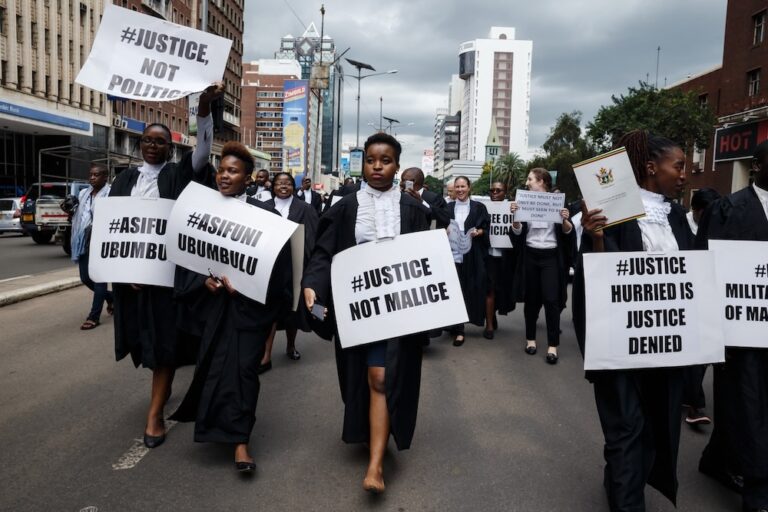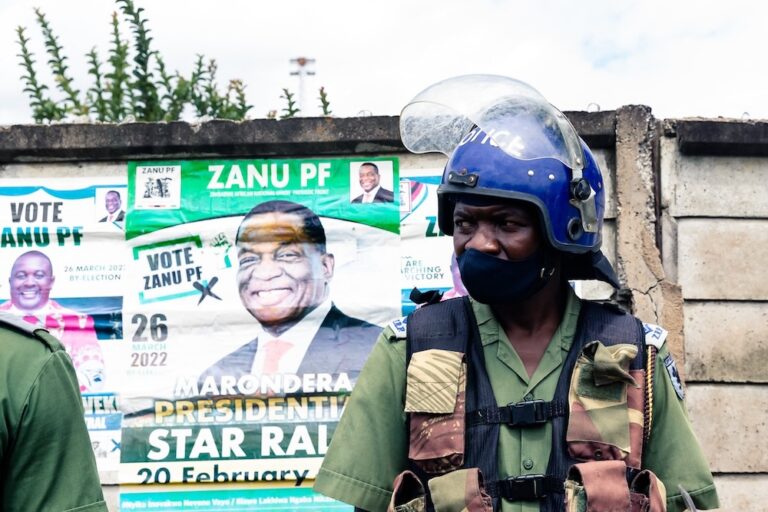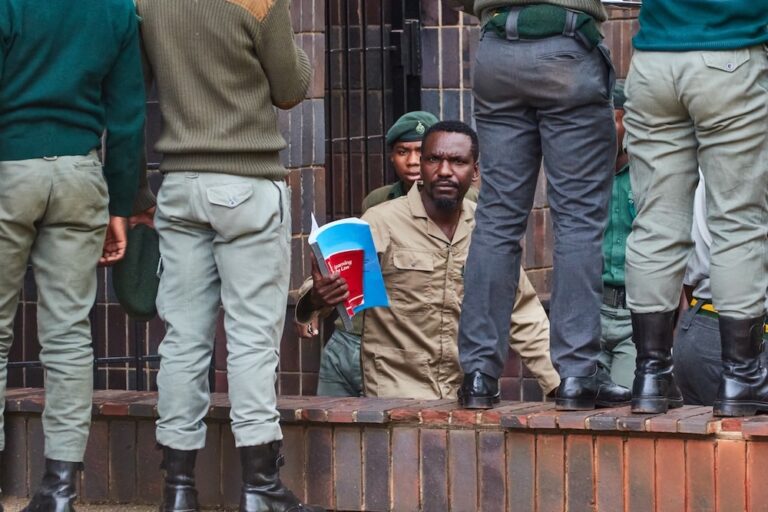(RSF/IFEX) – In an 18 April 2000 letter to Minister of Home Affairs Dumiso Dabengwa, RSF expressed concern about the deterioration of press freedom in Zimbabwe on the twentieth anniversary of the country’s independence. RSF urged the minister to ensure that journalists can work freely and safely in Zimbabwe. “We wish to remind you that […]
(RSF/IFEX) – In an 18 April 2000 letter to Minister of Home Affairs Dumiso Dabengwa, RSF expressed concern about the deterioration of press freedom in Zimbabwe on the twentieth anniversary of the country’s independence. RSF urged the minister to ensure that journalists can work freely and safely in Zimbabwe. “We wish to remind you that Zimbabwe has ratified the International Covenant on Civil and Political Rights, Article 19 of which guarantees press freedom,” added Robert Ménard, RSF’s secretary-general.
According to the information collected by RSF, several journalists have been physically or verbally attacked by “veterans”, former fighters in the war of independence, since the beginning of April. On 16 April, during a meeting with President Robert Mugabe in Harare, many journalists were assaulted by Zimbabwe African National Union-Patriotic Front (ZANU-PF ruling party) militants who brandished placards proclaiming: “That’s enough with CNN, BBC, and SABC lies”. A few days earlier, in an occupied farmhouse near Centenary (150 kilometers north of Harare), Alexander Joe and Rose-Marie Bouballa, a photographer and journalist with Agence France-Presse, respectively, and a cameraman with the British news agency Reuters were threatened by some fifty men armed with machetes and iron bars. Their leader declared: “If you come back here, we will take your equipment and your car, and we will keep you for many weeks if necessary.” He also prohibited them from taking pictures.
On 6 April, in another farmhouse, Nyasha Nyakunu, and Tsvangirai Mukwazhi, editor and photographer with the privately owned “Daily News”, respectively, were detained for two hours by ZANU-PF youths armed with iron bars. They threatened the journalists and seized their two cameras, identity cards and press cards, accusing them of being “pro-White people” (see IFEX alert of 7 April 2000).


